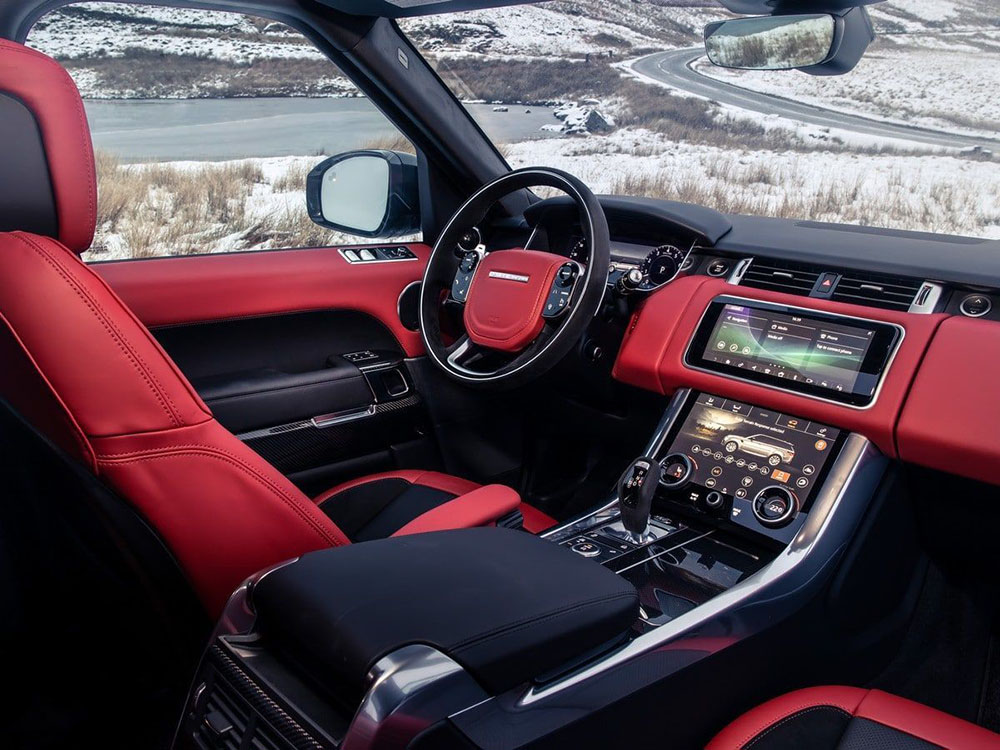Unlock Value: Smart Luxury SUV Deals and Tips
Explore how to secure outstanding value on luxury SUVs without sacrificing performance or comfort. This guide walks you through common promotional offers, must-have features, size trade-offs, and brand comparisons, plus practical tips for evaluating leases, financing, and long-term ownership costs. Learn how to compare deals, prioritize features, and negotiate smarter when shopping for a premium SUV.

How luxury SUV promotions save you money
Luxury SUVs often sit at the higher end of the market, but targeted promotions can bring them within reach. Manufacturers and dealers commonly advertise incentives such as lease specials, cash-back rebates, and low-interest financing that reduce the upfront or monthly cost. Some offers also include service packages, complimentary maintenance, or extended warranties, which can lower ownership expenses during the initial years. By combining incentives and negotiating effectively, buyers can enjoy a premium vehicle while keeping a tight budget.
Must-have features in a premium SUV
When evaluating a luxury SUV, think beyond badge and price. Exterior details like adaptive LED headlights, panoramic roofs, and power-operated liftgates enhance convenience and curb appeal. Aerodynamic design and chassis tuning influence handling and efficiency, so consider how the vehicle drives as well as how it looks.
Inside the cabin, prioritize comfort and technology that you will use daily: heated and vented seats, multi-zone climate control, high-grade upholstery, and sound-deadening materials for a serene ride. Safety and driver assistance systems such as lane-keeping assist, adaptive cruise control, and automated emergency braking are essential. Connectivity features — wireless Apple CarPlay/Android Auto, onboard Wi-Fi, and advanced infotainment systems — keep occupants connected and entertained. When assessing options, focus on the features that align with your driving habits and long-term satisfaction.
Compact vs full-size: choosing the right footprint
Luxury SUVs come in different sizes to match diverse needs. Compact luxury crossovers are well-suited to city life; they are easier to park and typically return better fuel economy while still offering upscale interiors and advanced tech. If you prioritize agility and lower running costs, a premium compact may be the better fit.
Full-size luxury SUVs cater to buyers who need roomy cabins, generous cargo space, or enhanced towing capacity. These models often feature more powerful engines, three-row seating configurations, and a more imposing road presence. If you frequently transport passengers, tow trailers, or simply prefer a commanding driving position, a larger SUV will likely deliver the utility and comfort you want.
Comparing deals across brands
Different luxury marques emphasize distinct strengths, which affects the appeal of their promotions. Below is a snapshot of notable models and what they emphasize.
| Brand | Model | Key Features | Estimated Starting Price |
|---|---|---|---|
| BMW | X5 | iDrive infotainment, xDrive AWD | $59,400 |
| Mercedes-Benz | GLE | MBUX system, E-Active Body Control | $56,150 |
| Audi | Q7 | Virtual Cockpit, quattro AWD | $55,800 |
| Lexus | RX | Lexus Safety System+ 2.0, hybrid option | $45,920 |
| Volvo | XC90 | Scandinavian design, Pilot Assist driver aid | $49,900 |
Prices, rates, or cost estimates mentioned in this article are based on the latest available information but may change over time. Independent research is advised before making financial decisions.
Each manufacturer approaches luxury differently: BMW often emphasizes driving dynamics and tech, Mercedes focuses on comfort and advanced suspension systems, Audi highlights interior tech and AWD performance, Lexus mixes reliability with hybrid efficiency, and Volvo leans into safety and minimalist design. Compare the standard equipment and available packages when evaluating advertised deals because two similarly priced promotions can offer very different real-world value.
How to evaluate a luxury SUV offer
Look past the headline monthly payment or sticker price. Calculate the total cost of ownership by factoring fuel consumption, scheduled maintenance, insurance, and expected depreciation. For lease offers, understand mileage caps, wear-and-tear charges, and end-of-lease obligations. If financing, compare APRs and loan terms from multiple lenders to find the best rate.
Resale value matters: some luxury models retain value better than others, which affects long-term ownership costs. Check dependability scores and owner satisfaction ratings to avoid surprise repair costs. Read the fine print on any included perks, such as complimentary maintenance or extended warranties, to know what is covered and for how long.
Before committing, schedule test drives of several contenders to compare comfort, visibility, ride quality, and feature usability. Spend time interacting with the infotainment and driver-assist systems to ensure they are intuitive and meet your needs. If negotiating, be prepared with research on incentives, invoice pricing, and competing offers — and be willing to walk away if the deal does not add up.
Final thoughts on finding value
Luxury SUV deals can be an effective pathway to premium motoring if you approach them strategically. Prioritize the features and size that suit your lifestyle, compare incentives across brands, and evaluate total ownership costs rather than focusing solely on monthly payments. Use test drives and independent reliability data to guide your choice, and scrutinize contract terms carefully. With thoughtful research and negotiation, you can find a luxury SUV that balances indulgence with smart value.






